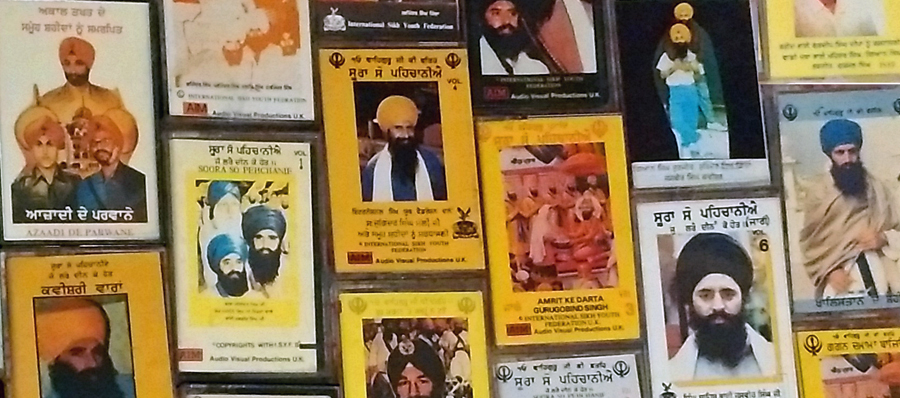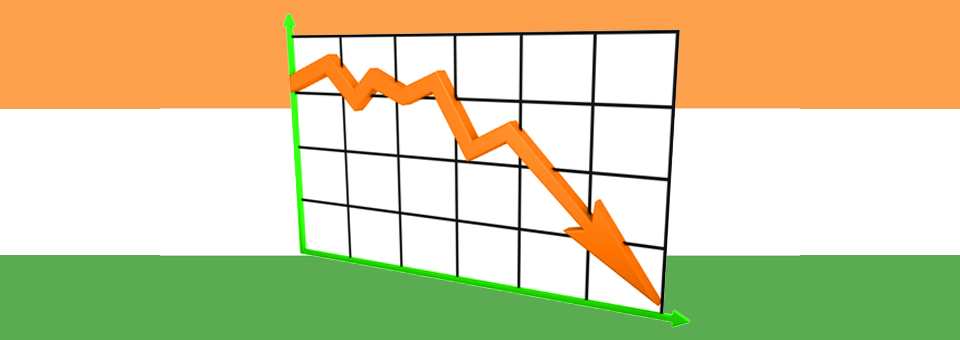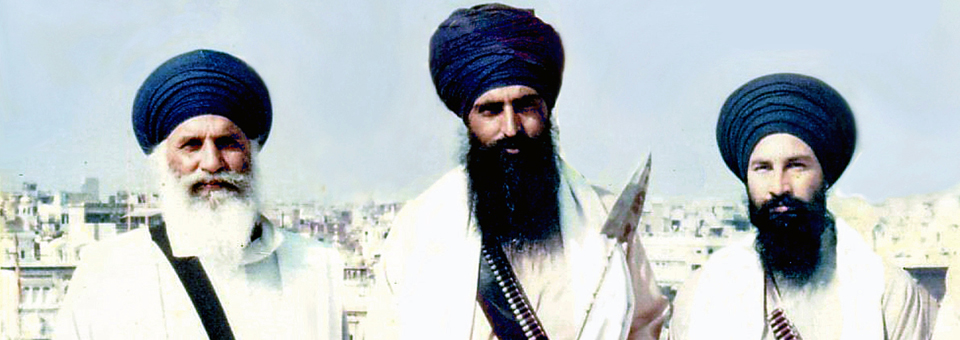Over a year ago I experimented with a new project here at naujawani, sharing Punjabi language songs from the 1980s and 1990s that I had grown up listening to. These songs complimented the armed Sikh struggle in Punjab for Khalistan and were an important tool to express the sentiments of a people removed from the ground, residing in the UK who were invested in some form in the freedom movement. We publish the songs on Soundcloud (free-to-download) and attach an page on naujawani, consisting of the Punjabi lyrics and an English interpretation. Three decades on, why is there a need to do this? Aren’t these songs out-dated and irrelevant, a symbol that we (I) haven’t moved on? And most importantly, is it not a risk in the present climate to be publishing such content online?
In the 1980s, there were commonly three ways of receiving news about developments in Punjab: newspapers – predominantly Des Pardes, Awaz-e-Qaum, and Punjab Times; announcements at the Gurdwara; and postal correspondence with family (Teletext World News in Brief updates came along in the 1990s). The latter was by far the least useful, as an event needed to be significantly prolific to be mentioned in a personal letter; also it would not be received for a number of weeks, such was the time consumed by postal deliveries in those days. Announcements at the Gurdwara were regular, but lacked depth and although they were relatively immediate, they were not always from the most reliable sources. That left it to the Punjabi language newspapers to report on everything from political activism to (fake) Police encounters with freedom fighters. These newspapers were ravenously absorbed in my household, as in many others, and the information they provided kept us informed and connected to the struggle in Punjab. But by its very nature, press journalism could not provide a complimentary outlet for emotive and expressive commentary on what was taking place; editorials and letters pages were limiting. Dharmik geets, religious folk songs if you will, filled that void.
Although the production values and packaging of these albums ranged drastically in quality, the content of the songs was the focus. Lyricists, poets and speech-writers jockeyed for positions to have their words make the final cut, whilst Sikh vocalists and musicians fiercely competed to perform on the albums. More often than not there were political connotations to the artistic decisions taken on an album, influenced by the various factions that were emerging in the Diaspora. But in the end this merely added to the calibre of songs that were produced.
Having acquired my parent’s vast tape cassette collection as a teenager (which I consider my own just as much as theirs) I have been digitising entire albums for over a decade, and there are playlists of songs that I listen to once a day/week/month without fail. Gradually realising that the songs were instigators of my personal journey to learn more about recent current affairs in Punjab, I began to introduce them to a new generation of Sikhs who unbeknown to me had no idea these works had ever been created. It was a troublesome discovery in more ways than one; many of those listening to the songs for the first time found it difficult to grasp the underlying meaning of the songs and connect the references with the very real events that they were based upon. Seeing my passion for the songs though, they badgered me to explain and it was then I realised that this needed to be done on a larger scale, for archival purposes if nothing else.
The first few ‘Songs of the struggle’ shared on our Soundcloud account and naujawani pages in late 2016 were well received. For all the limitations of interpreting poetry and prose from Punjabi into the medium of English, my aim of transmitting the general message of each song was seemingly successful. In our format, a brief introduction to the song provides a necessitated contextual basis, followed by the line-by-line English interpretations of the work itself. This style of presenting each song is a work-in-progress and the name of our Soundcloud account, ‘Kavita Genius‘, should make clear to those familiar with the ‘genius’ lyrical-breakdown website how much more elaboration we hope to add to each song when our resources permit. But what most readers/listeners won’t have realised is the time that it takes to put together a ‘Song of the Struggle’ project. All-in, it consumes about two days of work to prepare each song; hence throughout 2017 we didn’t publish any further interpretations. Instead, we focused on building a library of songs to publish on a weekly basis, complete with metadata information and interpretation. Having hoped to have started releasing these in the summer last year, it wasn’t until the start of 2018 that we were able to proceed. To date we have published eight songs and have more prepared to go live every Sunday throughout this year.
At a time when States across the globe are ‘cracking down’ on how the internet is used to share information, it has crossed my mind that this series could raise some eyebrows. I imagine the concern might be over the relevancy of the subject matter in the songs; perhaps a question might be asked as to what we’re hoping to achieve through interpreting this work for a new generation. To be frank, the uncomfortability of this series lies with its direct connection to the freedom struggle in Punjab, the idea of Khalistan, and the engagement of an armed struggle to that end. I can see why that would be a problem for some, but there can be no hesitation on our part as Sikhs to publish such works, for the words we recite daily in the Ardas, as well as in selections of the Guru Granth Sahib, underpin these ideas. To eliminate dharmik geets simply because they are sensitive in the (post-11th-September) World of today, is akin to censoring the dhadi vaars that recount our history. The songs are occasionally brutally honest, at other times they are generic, but what binds them is a connection to the Sikh way of life as it has been historically borne out.
In light of Scottish citizen Jagtar Singh Johal’s arrest last November and his continued incarceration, it was put to me that I should be cautious not to invite similar accusations, namely ‘radicalising’ or ‘inciting’ through publishing this material online. To be non-chalant at that suggestion is disrespectful to both him and his family, not to mention the earnest campaign to have him freed. But upon reflection, I can think of no better way of showing support for his innocence than continuing to publish this series. If today we live in a society where all too readily we are expected to toe the line drawn by the all-powerful State, by receding the voices that speak out against oppression past and present, then it is not a society that any of us can be satisfied with. The evergreen songs of the struggle are a reminder of what came before us and the courage of their subjects is as necessary today as it was thirty years ago. Documenting these songs online is my humble tribute to them, as well as those who created them.
Read our interpreted Songs of the Struggle here: https://naujawani.com/songs-of-the-struggle
Download and listen to our Songs of the Struggle here: https://soundcloud.com/user-412082185






